Human and social sciences at the bedside of health?
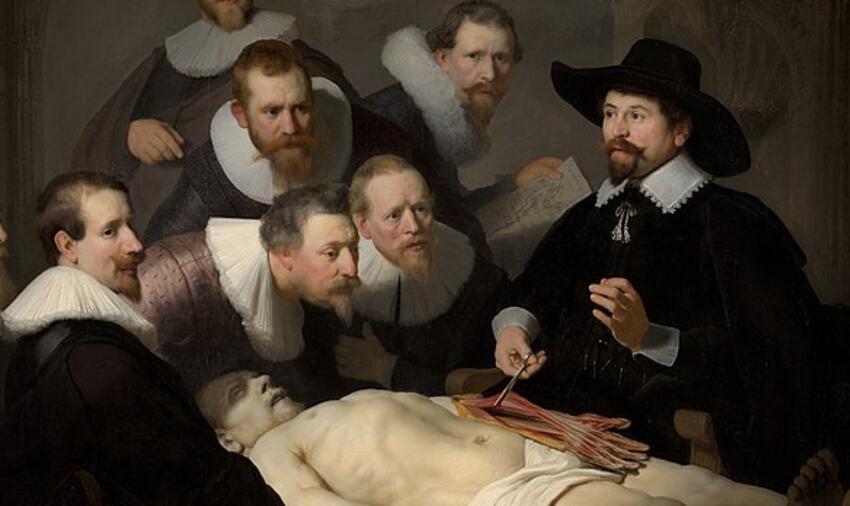
 Actualité Sciences Po
Actualité Sciences Po
Sciences Po and the Center for Economic and Policy Research sign a partnership agreement

 Actualité Sciences Po
Actualité Sciences Po
On 1 October, Sciences Po signed a partnership agreement with the Centre for Economic Policy Research (CEPR), under the aegis of France’s Ministry of Higher Education, Research and Innovation. Read our interview with Beatrice Weder di Mauro, the centre’s president, and Philippe Martin, a professor within the Department of Economics at Sciences Po and the Centre’s vice-president.
What is the Centre for Economic Policy Research?
Beatrice Weder di Mauro: Today, the CEPR consists of a network of over 1,600 economists based all around the world but focusing on Europe. It has continually developed the objectives it set itself when it was founded nearly thirty years ago. The first of these is to organise discussions between economists, for the most part working in academia, in order to provide an opportunity for them to meet, share ideas, discuss the findings of their research and critique one another as well. That is how science advances. All branches of economic research are represented within the centre: industrial organization, macroeconomics, economic history, international commerce, etc.
We also want to further develop our interactions beyond the academic sphere and to play a still more active role in European economic debates, particularly in addressing those making public policy decisions. The aim is to exploit core research and formulate proposals. We also seek to reach out to as many people as possible through publications that are accessible to the general public. This is what we do via the media platform VoxEu, which shares articles, videos and podcasts.
What was the basis for the partnership with Sciences Po?
Beatrice Weder di Mauro: One of them is circumstantial. Until now, the CEPR was based in London. However, it is an organisation with a strong European identity and, with Brexit, we felt the need to set ourselves up on the continent. Given the phenomenal part the European Union plays in our economies, a network such as our own cannot afford to be distanced from it. Another advantage is the ability this partnership will give us to strengthen our relations with a huge number of academic institutions, as well as central banks, ministries and actors in the private sector.
Why Sciences Po?
Philippe Martin: The aims of the CEPR and the Department of Economics at Sciences Po are closely aligned: academic excellence and a strong interest in public policy issues. Furthermore, Sciences Po’s reputation has been an asset in negotiating with those partners who made the development plans and the relocation to Paris possible. Put more simply, it is also because we know each other well! Two thirds of professors in the Department of Economics are affiliated to the CEPR. From a research perspective, the centre’s move to Paris is especially beneficial for the more junior researchers and PhD candidates; not only those at Sciences Po, moreover. The development of the CEPR’s activities will have a positive impact on all research in Europe.
Beatrice Weder di Mauro: I completely agree with everything Philippe has said. Philippe has acted as vice-president of the CEPR for over a year now and has proved particularly proactive in that capacity. I would just like to underline that each of us retains total independence, both academically and financially.
- Discover the CEPR
Twenty-three researchers joined us this year
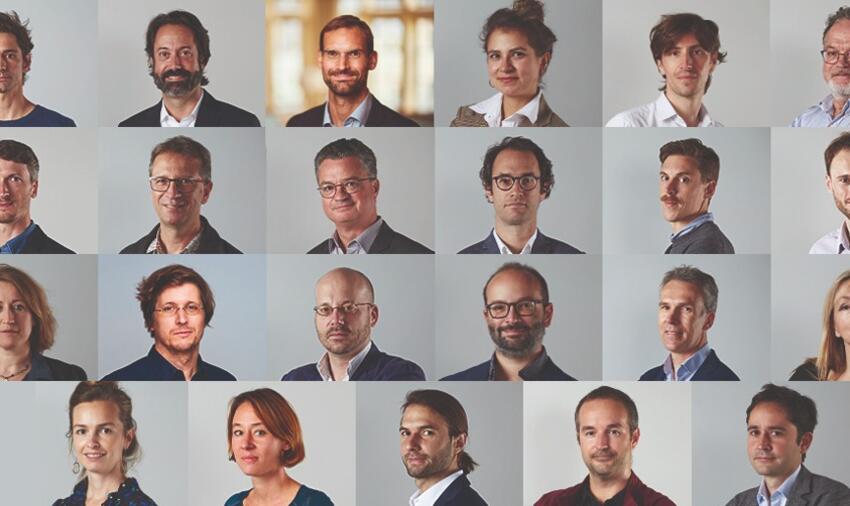
 Actualité Sciences Po
Actualité Sciences Po
Providing training in the social sciences, conducting and transferring high-level research, and participating in social debates are the missions to which our permanent faculty is dedicated. The twenty-three academics who are joining us this year are fully committed to these missions. Through their complementary and innovative approaches, they offer fresh perspectives in their questioning of key social challenges. Learn more about them here!
THE : Sciences Po in 50th Place Worldwide for Social Sciences

 © Times Higher Education
© Times Higher Education
The Times Higher Education (THE), which each year draws up world university rankings that have a strong following in the sector, has just published its rankings by subject. This year, Sciences Po is ranked 50th in the world in social sciences, which is 18 places higher than last year.
Sciences Po has progressed in all the areas monitored by this ranking and in particular on the "citations" indicator, which measures the influence of research at the global level (+9 points), as well as the "international profile" indicator (+6.5 points), which measures the attractiveness of the institution for both students and academics.
More information
Discover the Sciences Po's 2020 Research Report
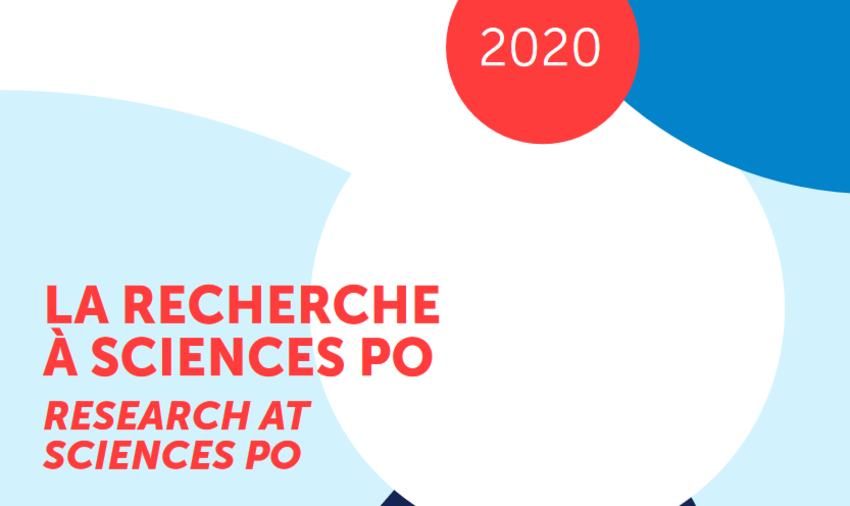
 Actualité Sciences Po
Actualité Sciences Po
The international reputation of our research confirmed by U-Multirank 2021

 Actualité Sciences Po
Actualité Sciences Po
Developed since 2014 at the instigation of the European Commission, the international U-Multirank ranking examines the performance of nearly 2,000 higher education institutions around the world.
Once again this year, Sciences Po is among the top 25 institutions, in particular because of its international dimension in terms of the mobility of its students and its research.
The international nature of our research is demonstrated by the number of doctorates awarded to international students, the proportion of foreign researchers in our academic community and the importance of scientific co-publications with international academics.
Our research is also distinguished by the high impact of its work. It obtains the highest grade (A) in terms of citations of its scientific publications and its involvement in the mainstream media. This is proof, if any were needed, that Sciences Po cultivates the link between intellectual standards and involvement in public debate.
Finally, our academic community is characterised by the presence of many young researchers (post-docs).
Find out more
Times Higher Education 2022: Progress in Research
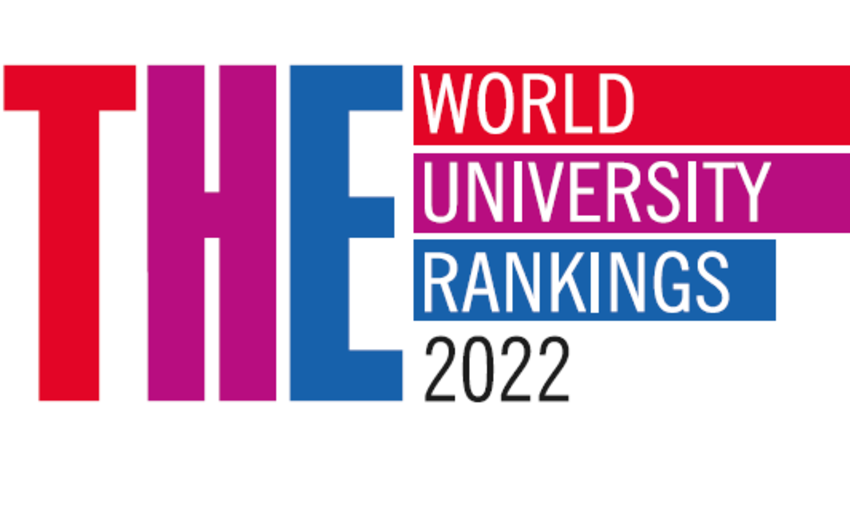
 THE World University Rankings 2022
THE World University Rankings 2022
In the world university ranking drawn up by Times International Education, released on 2 September, Sciences Po strengthened its position.
On a national level, Sciences Po is ranked 16th this year, up five places from last year.
This improvement is due in particular to the strengthening of our international position (% of foreign students, international staff and partnerships) thanks to an indicator that has risen from 78.4 to 83.7. On this point, Sciences Po is ranked 6th nationally.
A second indicator reflecting the contribution of our research to science (citations of our productions in scientific publications) has also improved significantly, rising from 46 to 57.3.
School of Research opens Courses to Early Stage Researchers from CIVICA Universities
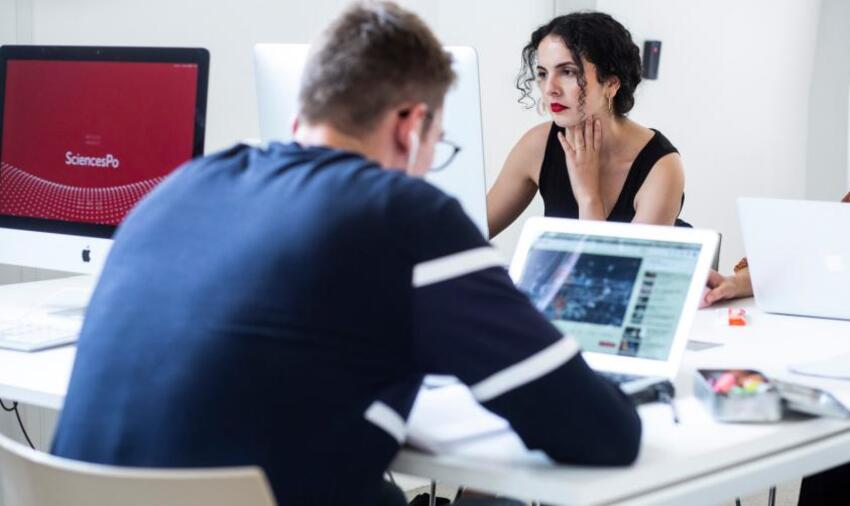
 Credits: Marta Nascimento / Sciences Po
Credits: Marta Nascimento / Sciences Po
Cogito 15: Full steam ahead!

 Cogito, le magazine de la recheche à Sciences Po
Cogito, le magazine de la recheche à Sciences Po
Tous les six mois, Cogito présente une sélection de nos recherches récentes en faisant la part belle aux approches comparatives et aux travaux interdisciplinaires. Deux démarches développées par l'un de nos fondateurs, Élie Halévy, dont le parcours intellectuel est ici retracé. Si des questions d'actualité sont aussi analysées dans ce numéro - comme celle de la dette publique liée à la pandémie - nos chercheurs et chercheuses décortiquent également des tendances de fond, telles que la renaissance des mouvements d'auto-justice ou l'évolution de nos rapports à l'argent. Et, comme le veut la tradition, y sont exposés une recherche historique originale et un outil de recherche utile à tous. Bonnes lectures !
In Folio
Un argent omniprésent par Jeanne Lazarus, CSO
Il est temps de réguler des réseaux sociaux par Dominique Boullier, CEE
Prendre la mesure du pessimisme français par Bruno Cautrès, Gilles Ivaldi, Luc Rouban, CEVIPOF
La dette Covid doit préparer l’avenir, entretien avec Xavier Ragot, OFCE
Cursus et métiers : comprendre la ségrégation genrée par Carlo Barone, OSC
Lire et relire Halévy par Marie Scot, Centre d'histoire
Controverses, mode d’emploi, entretien avec Clémence Seurat et Thomas Tari, médialab & Forccast
Quand la justice conditionne la productivité par Johannes Boehm, Département d'économie
Fiers de punir. Le monde des justiciers hors-la-loi par Gilles Favarel-Garrigues et Laurent Gayer, CERI
La recherche en projet
Évaluer les politiques publiques environnementales, entretien avec Charlotte Halpern, LIEPP, CEE
Jeunes chercheuses
Écrire l’histoire du futur, entretien avec Sibylle Duhautois, Centre d'histoire
Arabie Saoudite : vers un système universitaire normalisé, entretien avec Elsa Bedos, CSO
Fariba Adelkhah: already two years...

 #FreeFariba
#FreeFariba
CIVICA announces research call winners

 Actualité Sciences Po
Actualité Sciences Po
The CIVICA Research project aims at endowing CIVICA - the European University of Social Sciences in order to implement an ambitious and innovative research strategy. It received €2m funding from the EUprogramme Horizon 2020 to enable researchers to conduct joint scientific activities.
A major CIVICA Research added-value is to pool various european approaches on world-wide majors challenges, concerning Europe with particular acuity: Europe Revisited; Democracy in the 21st Century; Societies in Transition and Crises of Earth; Data-Driven Technologies for Social Sciences.
Pursuing this objective, CIVICA's Research first call invited faculty and postdoctoral researchers to team up for collaborative research projects.
Most of the eleven projects selected for funding bring together three CIVICA partners, with the biggest project involving six partners. Five projects gather faculty and researchers from Sciences Po, two projects being led or co-led by Sciences Po.
Project's presentation
Projects led by Sciences Po
Democracy and Its Discontents. A Historical Examination of the Current Predicament of Democracy
There is a broad consensus that modern democracies are facing today major difficulties if not a profound crisis. Existing studies identify some of its key drivers and manifestations : the link between inequality and the contestation of democracy; the roots and nature of the current populist and anti-systemic challenges; the redefinition of national identities and the loosening of the ethnic and linguistic homogeneity of many nation-states; the interdependence between democratic nation-states and the global context. The project considers that such studies must be complemented by a thorough historical investigation capable of defining a genealogy of the current democratic malaise, identifying historical antecedents to be compared, to this latest predicament of democracy. All the major history departments and centers of CIVICA will be involved in this investigation : The Sciences Po's Centre for History – as leader, European University Institute, Bocconi University, Central European University, London School of Economics.
Project investigator : Mario Del Pero, Full Professor, Center for History
European Polarisation Observatory: Measuring Positions of Users, Medias, Polarisation, and the Role of Algorithms and artificial intelligence Systems
Traditionally, people’s opinions on different issues of the public debate have been studied through polls and surveys. But recent advancements in network scaling methods have shown that digital behavioral traces - typically following/follower networks - in social media platforms can be used to mine opinions at a massive scale. This project seeks to develop a proof of concept for a European Polarisation Observatory of ideologies and attitudes towards crucial issues of public debate; e.g., taxation, immigration, European integration, perception of elites. The project would measure polarisation on these s issues, and investigate the role of algorithmic recommendations on user access to ideologically news. The results of the study will be implemented in research cutting across several disciplines: media studies, online social movements, and the analysis of the structure of party systems in European countries, among others. The project will specifically aim at two kinds of applications : first, to provide systematic measurements across Europe of the intensity of polarisation on different issues (e.g., left-right economics, or attitudes towards people and elites) in various online settings. Second, to tackle the question of the role of artificial intelligence in shaping European socio-political systems through algorithmic recommendation and its possible biases. Overall, this project aims to serve further developing an interdisciplinary European network of research in the computational social sciences. Sciences Po médialab and Central European University co-lead this research. London School of Economics, and Bocconi University take part in this project.
Projects investigators : Jean-Philippe Cointet, Associate Professor & Pedro Ramaciotti Morales, post-doc, médialab
Find out more
Projects with Sciences Po's participation
Contesting the Court: Examining Judicial Politics in the European Union
While long considered an important actor in European integration, the Court of Justice’s role in European Union politics is increasingly contested. This contestation comes from both sides, with national Courts and scholars deriding ‘activist’ rulings in particular areas while simultaneously complaining of a failure to proactively defend European legal values in others. This project aims to revisit the debate over judicial politics in the EU by examining the causes and outcomes of increasing contestation of the EU judiciary. It intends to examine factors that lead to controversy and their political, scholarly and substantive outcomes of contestation for the European constitutional order. In doing so, the project seeks to examine the constitutional resilience of the EU political order and the role of the judicial branch in safeguarding its basic principles. This research is co-led by European University InstituteI and Hertie School. Sciences Po Law School's Research Centre, Central European University, Bocconi University, and London School of Economics are part of this research.
Attitudes to Inequalities: Perceptions, Judgments, Justifications
The researchers involved in this project plan to run a set of studies that shall contribute to the psychology of inequality and its social and cultural expressions. What are people's perception of inequalities? How unequal do people think their societies are? What are the most salient issues that make a society unequal in people's views? What forms of inequality (if any) are considered more acceptable? Why do some narratives justifying inequalities appear successful? Are there quantifiable cultural variables that have predictive power over perceptions and moral evaluations of inequality? This project thus addresses a fundamental topic in ‘cognition and culture’--attitudes to inequalities and will especially focus on the European context. The topic is of great relevance to analyses of democratic processes, inequalities being identified as a greatest challenge for 21st century. Central European University, leads this research. Sciences Po's Center for Political Science and Department of Economics, London School of Economics, and the Romanian National University of Political Studies and Public Administration are part of the project.
When the Law is Silent: Hate Crime Prosecution and Implicit Bias in Law Enforcement Agencies
This project aims to investigate the prosecution of hate crimes in Romania, Bulgaria and Germany, with a specific focus on antisemitism, by looking into intrinsic motivations among the police and the judiciary. The core objectives of this research are to identify patterns of implicit bias among police officers, judges and prosecutors and their role in how individual files are legally instrumented, and examine the wider individual, institutional and societal markers that can account for bias and prejudice among law enforcement agencies and personnel. It will also seek to situate patterns of implicit bias into the wider matrix of the political order in Romania, Bulgaria and Germany, and formulate preliminary hypotheses for other European countries. This objective will situate the research into the wider agenda of democratic backsliding literature and issues of social hierarchy, violence and oppression. A final goal is to propose a set of recommendations on improving the legislation addressing antisemitism as well as raising awareness of this issue among policy-makers and law enforcing agencies. Led by the Romanian National University of Political Studies and Public Administration, the Sciences Po's Center for International Studies and the Central European University are part of this research.
Actuality of Populism
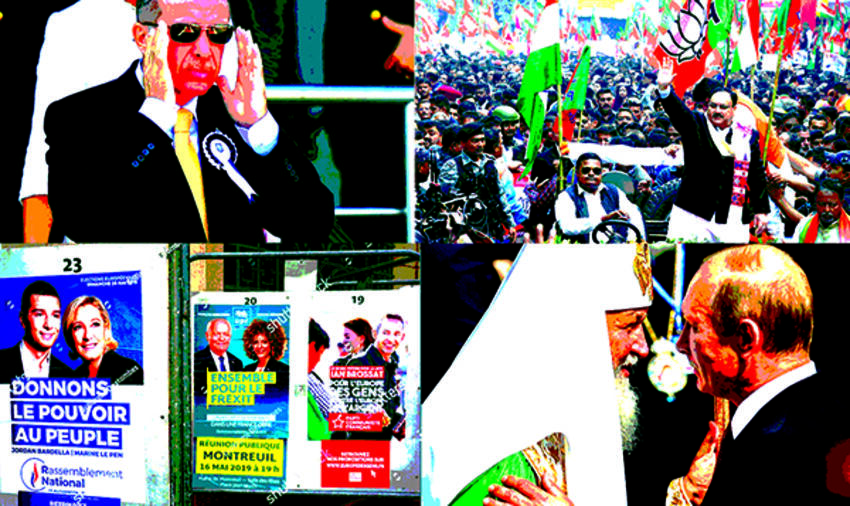
 Actualité Sciences Po
Actualité Sciences Po
Must read: latest issue of Cogito, Sciences Po's Research Magazine!
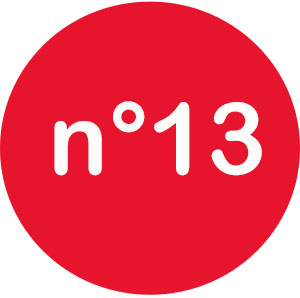
 Actualité Sciences Po
Actualité Sciences Po
Sciences Po Ranks 2nd in the 2021 QS Rankings for Political Studies
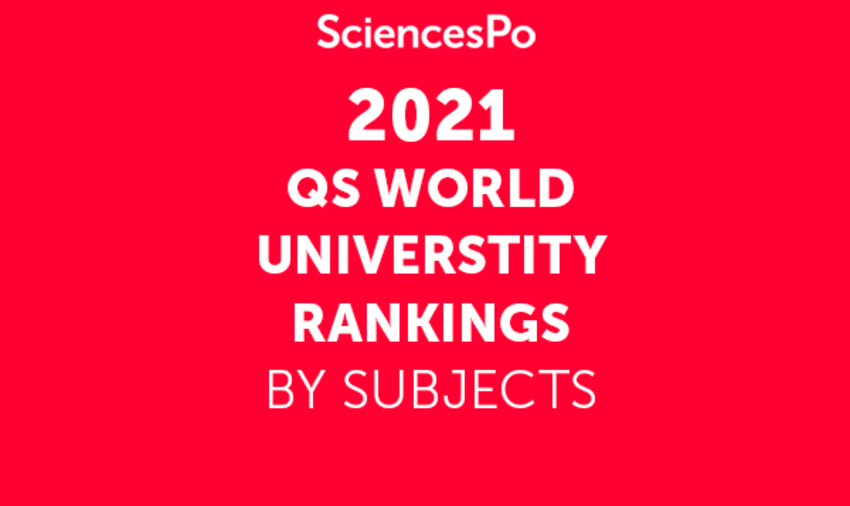
 Sciences Po it the 2021 QS RANKINGS. © Sciences Po
Sciences Po it the 2021 QS RANKINGS. © Sciences Po
For the last eight years, the QS World University Rankings by Subject, which compares more than 1,400 universities worldwide, has consistently confirmed the quality of research and teaching at Sciences Po, in comparison with the best universities in the social sciences.
In the QS 2021 ranking unveiled on March 3, 2021, Sciences Po maintains its worldwide second place in Politics, placing behind Harvard University and ahead of Oxford. Sciences Po thus remains Europe’s leading university in this discipline.
The ranking for all disciplines in the category encompassing all social sciences places Sciences Po in 56th place, three points higher than in 2020.
Sciences Po is also ranked in the world's top 50in three other disciplines, two of which have increased compared to last year:
- 21st place in "Social Policy and Administration" (23rd in 2020)
- 30th place in Sociology
- 39th place in "Development Studies" (40th in 2020), confirming the significant progression begun in 2020 compared to the previous year when Sciences Po was ranked in the top 100.
In Law, Sciences Po ranks 51st best university, 81st in Economics and Econometrics, and in the top 100 in History.
Nationally, Sciences Po remains first in Politics, Sociology and "Social Policy and Administration", second in Law and "Development studies". Sciences Po has moved up three places in History (tied for third with the School of Advanced Studies in the Social Sciences - EHESS, 6th in 2020). Finally, Sciences Po maintains its fourth position in Economics and Econometrics.
----
See the results of the 2021 QS Rankings by Subject
See the results of the 2020 edition QS Rankings by Subject
Subscribe to Cogito, the research magazine
First CIVICA call for research projects

 First CIVICA call for research projects - Shutterstock
First CIVICA call for research projects - Shutterstock
Division or Solidarity in Times of Lockdown

 Nuit des idées. Crédits : Institut français
Nuit des idées. Crédits : Institut français
Division or Solidarity In Times of Lockdown
Online International Debate on 28 January 7 pm - 9.30 pm (Paris time)
While we know that the lockdown unveiled and increased societal inequalities, we also witnessed the emergence of unexpected solidarity movements. To better understand these phenomena and their possible development, we must examine them in depth.
In the framework of the 2021 edition of the Nuit des idées, this event will be devoted to this dichotomy, which we have decided to address in two parts: the first roundtable will be dedicated to Gender Inequality, the second to Care and Austerity.
We have also chosen not to limit analyses to the French case but to engage in discussion with Oxford colleagues in order to have a comparative approach between our two countries and to identify their differences and their commonalities.
7.30 pm - 8.15 pm - Lockdown: Comparing the Effects on Gender Inequalities
Lockdown and the COVID-19 pandemic more generally have affected the gendered division of labour within female/male couples. In some cases, women had to simultaneously manage paid work and more work within the household. But in some situations, men might have become more aware of the weight of the load on women and/or increased their contribution. The pandemic also appears to have had a gendered impact on incomes and poverty. The discussion will be focused on a comparison between France and the UK.
Discussion between:
Fran Bennett, Senior Research Fellow, Department of Social Policy and Intervention, University of Oxford and member of Policy Advisory Group, UK Women's Budget Group and Hélène Périvier, Economist, OFCE Sciences Po, Director of PRESAGE
8.15 pm - 9.00 pm - Lockdown: a ‘Revolutionary Moment’ to Rethink Care Versus Austerity?
The responses to COVID-19 expose the strengths and weaknesses of the welfare state and provide a vantage point to think about a different vision of welfare and ‘good care’ in our societies and observe how governments and public opinion is reacting to the long-standing prevalence of austerity policies across Europe.
Is the Covid-19 crisis a turning point and revolutionary moment for the welfare state?
Would this be an occasion to understand the need of universal care as a fundamental good for society? Are people’s attitudes shifting against the austerity measures that have helped to retrench essential care services for the population?
Discussion between :
Mary Daly, Professor of Sociology and Social Policy, University of Oxford; Fellow, Green Templeton College, Oxford and Emanuele Ferragina, Associate Professor of sociology, affiliated with the Observatoire sociologique des changements and the Laboratory for Interdisciplinary Evaluation of Public Policy, Sciences Po.
Leading of the debates by Cléa Chakraverty, Politics and Society editor at The Conversation France
"Migration, diversity & mobility": a Cogito Dossier
aecf.jpg?1606216931)
 Actualité Sciences Po
Actualité Sciences Po
Social groups and individuals have always moved, more or less permanently. These moves, in all their diversity over time and space, feature many motives, trajectories, and repercussions – hence the imperative to analyse them with an equally multifaceted focus. The numerous research projects conducted at Sciences Po, particularly within the Migration and Diversity group, reflect this and seek to develop new approaches. This dossier presents an overview of their insights:
- Arrested in Tehran in June 2019, and then sentenced to 5 years in prison on the basis of false accusations, our colleague, Fariba Adelkhah has long studied a wide range of travels. In this introductory article – “Rereading Fariba Adelkhah: on the road from Teheran to Damascus” – we present one of her works, in which she reveals the unexpected dimensions of a pilgrimage of Iranian women to Damascus. Her anthropological perspective uncovers the social significance of the details of daily life.
- With his article on “Migration and integration: global cities in the Mediterranean in the 18th century”, David Do Paço presents the ways in which foreign communities have integrated Mediterranean cities in the modern era. He shows that beyond the collective factors – 'Nations', families, and religions... – other dimensions newly studied in micro-history contributed to the integration of immigrant populations.
- For more than fifty years, transnational travel, mainly by air, has exponentially grown. Last March, it was abruptly suspended in order to contain the global spread of Covid. Based on recent surveys, in his article “Before the Deluge Before the flood: the irreducible growth of human mobility in the world before Covid”, Ettore Recchi outlines the particular geography of our travels over the past few decades and explores the prospects for their recovery.
- Legal expert Louis Imbert's contribution – “When Constitutional Law Imagines Foreigners” – is a cultural and comparative analysis of North American and Colombian law relating to foreigners. It presents two radically different legal policies: one based on the principle of exclusion, and the other based on the duty to show solidarity, both of which have significantly impacted our perception of immigrants, as well as their daily lives.
- Between exclusion and integration, it is also important to consider partial policies that neither accept nor refuse immigrants, but rather integrate them into the labor market, turning a blind eye to the illegal practices of recruiters. This is what Lucas Puygrenier exposes in his article “Migrant labor: policies serving production systems”, drawing on a study of the employment of refugees and asylum seekers who make it to the island of Malta.
- The impact of migration on the labor market is endlessly controversial: do immigrants form a needed labor pool, or is their competition harmful to "native" workers? This question divides both public opinion and economists. In his article on “Migration, Wages and (un)Employment”, Hélène Thiollet and Florian Oswald present many empirical studies while highlighting the elements to consider in order to build a perspective that better reflects reality.
- Citizens are increasingly mobilising to end the discrimination and systemic racism affecting immigrants and their descendants. In response, the far right is pointing to anti-white racism. To analyse the relevance of this latter concept, Daniel Sabbagh in his article ”Is There Such a Thing as “Anti-White Racism”?”, delves into the foundations of racism, or rather racisms. By focusing on their mechanisms and actual consequences, he sets the record straight.
- Highlighting the limitations an excessive research focus on the migration policies of Western states in her article "Unlocking Migration Politics: Gaps and Biases in Scientific Debates", Hélène Thiollet calls for reinventing research on migration policies. She suggests more studies on the countries of the South as migration destinations, and most importantly, consideration of migration both as the subject of migration policies and as one of the constitutive phenomena of nation states. .
- Given the vast subject and its significance for the peaceful development of societies, it has been addressed in many research projects. We present here the approaches and methods of a sample of recently initiated projects: the politicisation of Asian minorities in France, the establishment of statistics at the European level, the media treatment of migration "crises", the role of mobility in intercultural relations and technological progress, and the outsourcing of migration policies.Discover the projects!
Welcome to the eight new members of our permanent faculty!
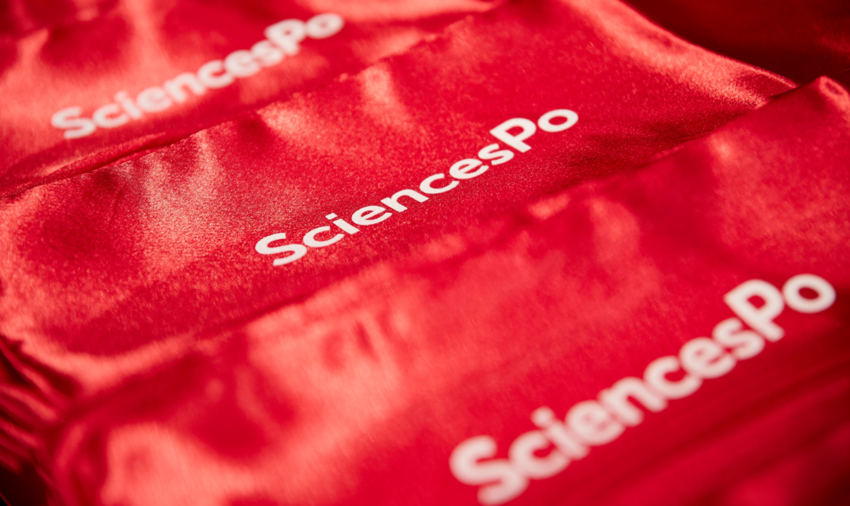
 Actualité Sciences Po
Actualité Sciences Po
In 2020, Sciences Po welcomed eight new members to its permanent faculty. Eight researchers who, each in their own field of expertise, open doors to new knowledge for our research and our teaching. These new thinkers strengthen our research units, irrigate our courses, and reinforce Sciences Po's presence in public debate. Discover their bios!
Sciences Po ranks 2nd nationally in Times Higher Education World University Rankings 2021
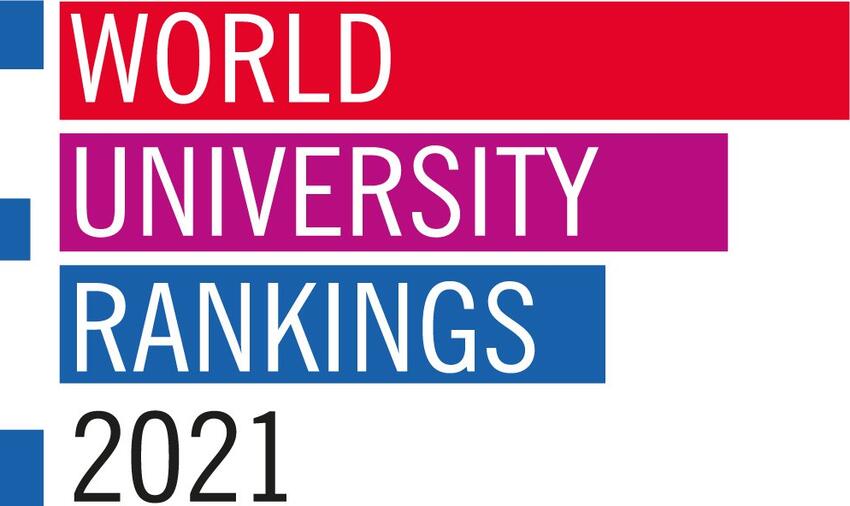
 Actualité Sciences Po
Actualité Sciences Po
Research ranking
In the 2020 Times Higher Education World University Rankings in social science, Sciences Po ranks 68th globally and 2nd nationally.
Our strengths lie in our internationalization and the citations of our researchers' publications, two indicators in which we have progressed from last year.
More information:
Novembre 2020
Christophe Jaffrelot, New President of the French Political Science Association
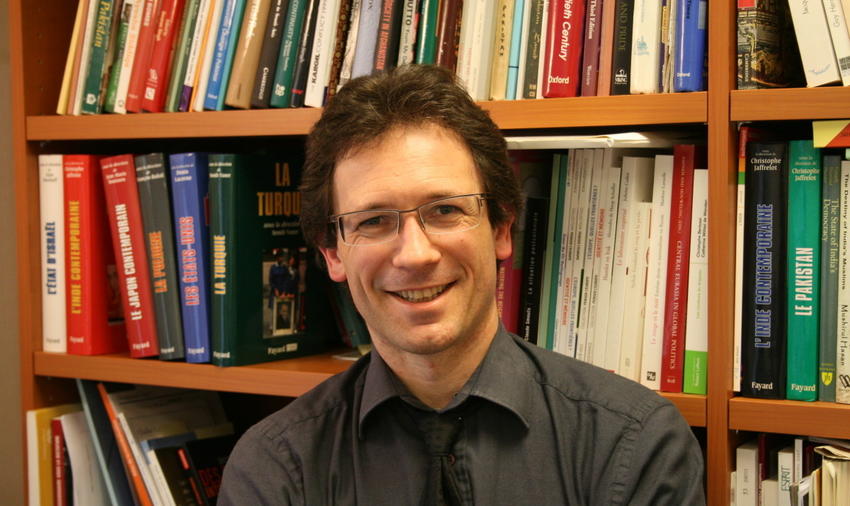
 Christophe Jaffrelot crédits image Sciences Po
Christophe Jaffrelot crédits image Sciences Po
Christophe Jaffrelot, Centre Nationale de Recherche Scientifique (CNRS) Research Director at the Centre de recherches internationales de Sciences Po (CERI), has just been elected the President of the French Political Science Association (AFSP). The opening of this chapter provides an opportunity to revisit the mission of this association, which was established by Sciences Po in 1949. It is also an occasion to discuss the projects of the new team that has been formed by Christophe Jaffrelot and Michel Mangenot, the Secretary General of the AFSP. Interview.
You devote your research to understand Indian and Pakistani societies and their political life. Isn't this at odds with the vocation of the French Association of Political Science, which seems to be national in scope ?
If the AFSP is French, that does not mean that it confines itself to France, far from it! Political science itself - like other social sciences, moreover - hardly recognises national borders - and if it does so, it is not to see them as an obstacle, but, as far as possible, to engage in a dialogue between traditions and methods that remain, it is true that they are different – as demonstrated by the weight of quantitative approaches in the United States and the greater importance of the "field" in France, for example.
As far as my personal case is concerned, I do not see the "exotic" nature of my objects of study as a problem. If my empirical terrains are in South Asia, I study them using social science theories. In fact, I have written texts on the theories of nationalism, democracy, populism... and I am about to do the same on authoritarianism, a sign of the times....
Working on South Asia, however, has led me to explore more the dimensions of political science that lie at the intersection of other disciplines, necessary to the intelligence of my objects, such as anthropology, sociology and geography - and not to mention history, my natural inclination. However, this in no way constitutes a betrayal of political science, which is a crossroads discipline par excellence. Do we not talk about political sociology, political anthropology, political economy and political philosophy. This is because power relations can be analysed from many angles.
I would also like to add that if we want to define political science as the science of power - which seems to me to be a good approach - it is necessarily "all fields" because there is power everywhere, and comparing the forms that power takes in different societies is most intellectually stimulating! The founders of the AFSP understood from the very outset the interest of "comparative politics". Although it was not until 2020 that a specialist from faraway lands became president of the Association, the Association showed an interest in comparatism from the very beginning and internationalised its activity from 1949 by participating in the Constitutive Conference of the International Political Science Association.
In addition to your research activities, you have performed important research "administration" functions. What impact has this had on your own work?
These kind of functions hinder research work more than anything else in reality! Moreover, I have never been a candidate for any administrative function without "someone coming to look for me". However, on the one hand, scientists have to make their institutions work - because they are in a better position than anyone else to do so - and on the other hand, those who take on these kinds of tasks still find some advantage from the point of view of their research. Being a "full-time" researcher as a CNRS staff member, like me, can lead to hyper-specialisation. Taking on research administration functions means opening up to other approaches, other methods, other fields, and this is how one can progress in one's own research, through comparison - I will come back to this! In social science, too, there are "Eureka moments," which one prepares for by acquiring an intimate knowledge of one's object, but which often arise inadvertently - and reading work on different objects written by colleagues with other perspectives can play a catalytic role here. Examples: I understand better and Indian-style crony capitalism by learning about Russian oligarchs and Hindu national-populism by reading about Erdogan's Turkey... Yet one does not necessarily make these detours without being obliged to do so - and getting involved in tasks of collective interest creates this obligation. Having said that, there are other ways to achieve the same result! At CERI, the cohabitation of specialists from very different fields has recently allowed us, for example, to publish a book comparing the exercise of power by fifteen populist leaders - and this is only the latest and most recent manifestation of a long comparative tradition that leads us to relativise the specificity of cultural areas: when we make the effort to subject different societies to the same questioning, we become aware of the limits of this notion.
Since its creation, the Association has undergone important changes. Can we retrace the main stages?
First of all, a historical point: the AFSP was born in 1949 at Sciences Po, where its first president, André Siegfried, and its first secretary general, Jean Meynaud, served. From the outset, the Association was inclined towards interdisciplinarity - Fernand Braudel, Raymond Aron, Lucien Febvre, Jean-Marcel Jeanneney, Marcel Griaule, Alfred Sauvy and others participated in the founding meeting of the AFSP. Two years later, the AFSP was the melting pot, still at Sciences Po, of the French Journal of Political Science.I recall these founding elements in order to put into perspective what might appear, in retrospect, to be fundamental evolutions and to outline a periodisation that owes much to the work of Yves Deloye, Secretary General of the AFSP from 2003 to 2016, who has endeavored to write its history (see in this regard the wealth of information on the Association's website: https://www.afsp.info/association/archives/frise-historique/).
If we think in terms of stages, which is not so easy because continuity prevails in many ways as my "history point" suggests, the first stage, from the late 1940s to the early 1950s, is important to understand because it sheds light on the second : after the war, it was a question of inventing a discipline in the singular (political science) in a country where the political object had hitherto been the subject of plural analyses borrowing from law, philosophy, history and other human and social sciences. It was necessary to catch up with the United States and the United Kingdom, where the development of the discipline had begun between the wars.
The second stage began at the end of the 1960s when the AFSP (and notably Jean Touchard, who was then both at the FNSP and at the Association as Secretary General) realised that the first two decades of its history had not produced the desired effect: French political science remained marginal on the international scene (notably at the International Association of Political Science – AISP world congresses) and lacked a methodological foundation. The AFSP will contribute to this awareness and will promote its professionalisation. In this respect, its role in the creation of the political science aggregation in the early 1970s should be emphasised, since it definitely made the recruitment of political science teacher-researchers autonomous from the legal matrix, which was still de rigueur.
A third stage began with the arrival of Jean-Luc Parodi as Secretary General of the Association in 1980 - he remained there until 1999, and during these two decades he endeavored to improve recognition of the social utility of the discipline (to better interpret the world in which citizens live) and its professional basis. It is the time when there was a proliferation of study days, of the opening of a dialogue with other disciplines (law, anthropology, history...) and especially of the first congresses. The AFSP congresses became places of intellectual exchange and socialisation for young social-politists. I myself have benefitted from this, all the more so since the paper I presented at my first congress in 1988 was later published in the RFSP thanks to the benevolence of George Lavau and my thesis supervisor, Jean Leca. However, the role of the congresses in terms of socialisation was not limited to the scientific order: it also allowed for exchanges on how to teach political science, at a time when the discipline was developing in universities, particularly in the regions. Yes, an important turning point in the history of the AFSP was the creation and growth of this meeting, to which everyone is invited – even those who do not have a permanent job. The first edition took place at Sciences Po in 1981. The second, five years later, the Congress became quadrennial and then biennial in 2005 under the impetus of Nonna Mayer and Yves Deloye, respectively President and Secretary General.
The internationalisation of the AFSP was asserted in the 1990s, under the leadership of Jean Leca, who first presided over the Association in 1993-94, then the AISP in 1994-97 and again the AFSP, until 2005, the year Nonna Mayer succeeded him and further accentuated this process of internationalisation.
Another change occurred at the end of the 1990s, under the aegis of Pierre Muller, Secretary General, when the AFSP became more involved in the defense of political science professions, an approach that finally led in 2005 to the creation of the l’Observatoire des Métiers Académiques de la Science Politique (OMASP).
A final inflection, thanks to the initiative of Andy Smith and Nicolas Sauger - and to the energy of the AFSP's administrative team, made up of Anne Avy and Isabelle Rocca - was marked in 2017 by the redesigning of the Association's website and by a notable presence on social networks: tools that still need to be ramped up.
The internationalisation of the AFSP was asserted in the 1990s, under the leadership of Jean Leca, who first presided over the Association in 1993-94, then the AISP in 1994-97 and again the AFSP, until 2005, the year Nonna Mayer succeeded him and further accentuated this process of internationalisation.
Another change occurred at the end of the 1990s, under the aegis of Pierre Muller, Secretary General, when the AFSP became more involved in the defense of political science professions, an approach that finally led in 2005 to the creation of the Observatoire des Métiers Académiques de la Science Politique (OMASP).
A final inflection, thanks to the initiative of Andy Smith and Nicolas Sauger - and to the energy of the AFSP's administrative team, made up of Anne Avy and Isabelle Rocca - was marked in 2017 by the overhaul of the Association's website and by a notable presence on social networks: tools that still need to be ramped up.
Today, what are the main challenges that the Association will strive to address?
As I said, the AFSP's vocation is to be the professional association of French social-politists. It must be entirely that, beyond the 341 members it has today in its ranks. It is in this spirit, moreover, that as director of the CERI I decided to reimburse their membership fees to the researchers in the lab who joined the AFSP. It is not a question of " crunching numbers ", of inflating the number of members for the sake of it, because it is not an end in itself, but because an AFSP fully representative of its professional environment will allow it to walk on its own two legs: On the one hand, the association is an academic society where all scientific sensibilities should be able to discuss the major themes of the discipline and its methods; on the other hand, the AFSP is a privileged place to defend the professions of political science, at a time when the precariousness of lecturer-researchers and researchers is increasing, when job creation is completely out of step with the growing attractiveness of the discipline to students and when contract research has not succeeded in proving its worth. We want to take stock of all of this so that we can be more than just a lobby: a creative force.
It is to try to rise to these challenges that Michel Mangenot, professor at the University of Paris 8 where he directs the Institute of European Studies, and myself have set up an office where the members are in charge of missions are as many as the priorities. We have already mentioned the defense of political science professions, where Frédéric Sawicki will be on the front line; Assia Boutaleb and Hélène Combes form a tandem focused on research activities, both those of the AFSP working groups - a breeding ground for vital forces - and those that expose academics to all sorts of dangers, starting with those in the field, as we bear witness today by the cruel imprisonment of Fariba Adelkhah, whom we have not forgotten! Carole Bachelot is in charge of strengthening AFSP's network of partners, notably by getting closer to academic societies in other disciplines, both to reinforce intellectual exchanges and to better defend scientists; Claire Dupuy is working on the internationalisation - already well underway - of AFSP, a task that again requires partnerships, but also more occasional exchanges and increased socialisation of young and no so young, internationally. In this regard, having participated in the IAPHS Congress held at Sciences Po in 1985 and in dozens of international conferences (notably in the United States where I taught every autumn for ten years), I must say that I have always been shocked by the persistent lack of knowledge, in these forums, of excellent French works, due to a lack of translation or the inability of authors to afford to attend major conferences. When I was director of CERI, I made participation in these conferences a priority - it is still close to my heart. Last but not least, Marieke Louis, who has valorisation as her mission, will help AFSP to exist in the City by using new audio/visual tools, since it is so important to make our political science and those who pursue it even better known.
In 1969, at a key moment in the history of France, Jean Touchard regretted that the AFSP was "too discreet /reserved " because, he said, "it is up to the AFSP to reflect on the state of political science in France and to make a certain number of precise proposals and establish priorities". This observation and his call to action remain topical, in a context that is finally comparable, and we will make sure that we draw the consequences from it, in a collegial manner that also involves the AFSP Board of Directors, where all the good will is already being put to task!
Christophe Jaffrelot, CNRS research director at the Centre de recherches internationales de Sciences Po (CERI), devotes his research to nationalism (and more particularly to national-populism) and to processes of de-democratisation, particularly in the context of Indian and Pakistani political societies. His research interests include the evolution of the Indian political system, the sociology of the Indian political class, the links between religion and politics, and the external relations of India and Pakistan.
He was awarded the bronze medal of the CNRS and today his work is an authoritative reference in his research fields. His activities related to the promotion and organisation of research have been and remain numerous: Director of book collections, Editor-in-chief or director of scientific journals in France and abroad, Director of CERI (2000-2008), President of the "Politics, Power, Organisation" section of CNRS (2012-2016), President of the Scientific Council of the network of French Research Institutes in Asia (2006-2016). He is also a member of many scientific councils in Indian, German and Pakistani universities. In addition to these functions, he is actively teaching at Columbia, Princeton, Yale, Johns Hopkins, Montreal and King's College (London). He is also involved in action research as a permanent consultant at the Quai d'Orsay Center for Analysis, Foresight and Strategy since 2008, a Non-Resident Fellow at the Carnegie Endowment for International Peace and an expert at the Montaigne Institute.
CIVICA’s research and innovation

 CIVICA
CIVICA
CIVICA – The European University of Social Sciences has received funding to strengthen its research dimension from the EU’s programme Horizon 2020, under the chapter “Science with and for Society.”
The activities funded under this call aim to establish “CIVICA Research,” a joint long-term research and innovation environment. CIVICA Research will complement CIVICA’s education strategy supported by Erasmus+, which already includes a work package dedicated to research in four areas in particular: Societies in Transition and Crises of Earth; Challenges to Democracy in the 21st Century; Europe Revisited; and Data Driven Technologies for the Social Sciences.
The latest issue
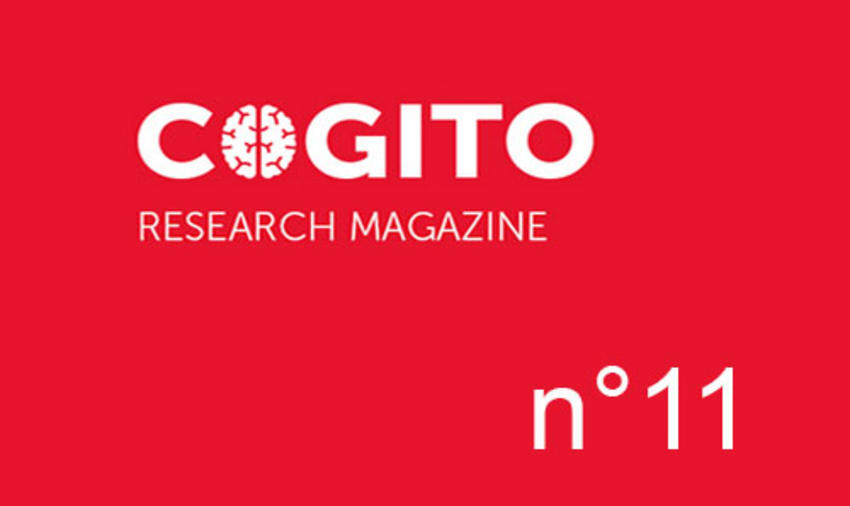
 Actualité Sciences Po
Actualité Sciences Po
The pandemic – analysed in this issue in terms of some of its social aspects – has not eclipsed the more serious and long-lasting issue of environmental degradation, to which several articles are devoted. Other key issues – artificial intelligence, otherness, and savings – are also explored, offering new perspectives on current events. Research with an international scope, combining economics, political science, and sociology, is also presented. The issue culminates in a painful story that resonates today more than ever: that of the end of slavery. Enjoy the read!
Summary
- When Economists Study Politics in Developing countries, Interview with Benjamin Marx
- Pesticides. How to Ignore What We Know by Jean-Noël Jouzel
- Small Island States Facing Climate Change, Interview with Carola Kloeck et Michael Fink
- Pollution Sensors: A Tool for Collaboration Between Citizens and Public Authorities? by Sylvain Parasie
- The Littoral: a Historical Investigation in the Anthropocene Epoch by Giacomo Parrinello
- Artificial Intelligence: What Revolution Are We Talking About? by Virginie Tournay
- For a Better Intergenerational Circulation of Assets, Interview with Vincent Touzé
- Why Join a Political Party Today? by Laura Morales
- How Voters Respond to Crime Control Policies by Roberto Galbiati
- How Private international Law Reveals our Relationship to the Other, Interview with Horatia Muir-Watt
- This Peculiar Epidemic is a Happiness Disease… by Hugues Lagrange
- The Long End of Slavery in the Maghreb, Interview with M’hamed Oualdi
- ELIPSS: Portrait of the French Under Lockdown, a OSC/CDSP Survey
New Cogito Dossier : Gender Equity
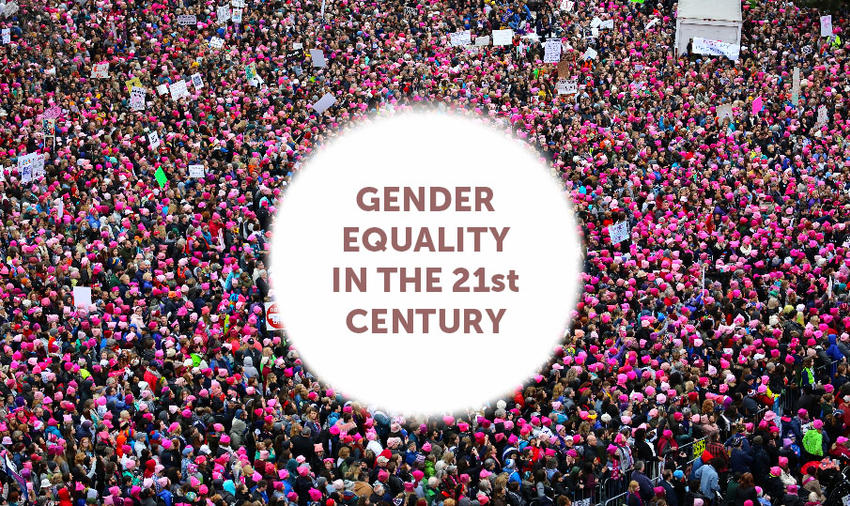
 Actualité Sciences Po
Actualité Sciences Po
It is not the current health crisis that is making us realise the precariousness of women and domestic violence. These problems – like so many others – have long been known. This issue addresses areas that are rarely analysed: the negative consequences of some purportedly egalitarian and scientific policies, the geopolitics of gender, the impact of climate change on women’s lives, the paradoxical aspects of marital relations, and factors of persistence in educational and professional inequalities. The hope is that reading this issue will help everyone advance a cause that benefits society as a whole.
SUMMARY
- Introduction: Is Gender Equality Possible in the 21st Century? by Hélène Périvier
- The New Spirit of Neoliberalism: Equality and Economic Prosperity by Hélène Périvier and Réjane Sénac
- Gender and “Illiberal” Democracies:towards a New European Divide? by Maxime Forest
- Competing Perspectives on Climate Change and Gender by Helena Alviar Garcia
- Breastfeeding Policies Disconnected from Reality by Marta Dominguez Folgueras
- Marital Separations and the (Non-) Emancipation of Women by Émilie Biland-Curinier
- Marriage Migration: Female Paths by Hélène Le Bail
- Gender Inequalities in Higher Education by Ghazala Azmat
- Are Quotas a Solution for Equality? by Anne Revillard
More
Historical Migrations, Trade, and Growth

 Map overlaying neolithic sites and modern cities
Map overlaying neolithic sites and modern cities
Fariba Adelkhah jailed in Iran
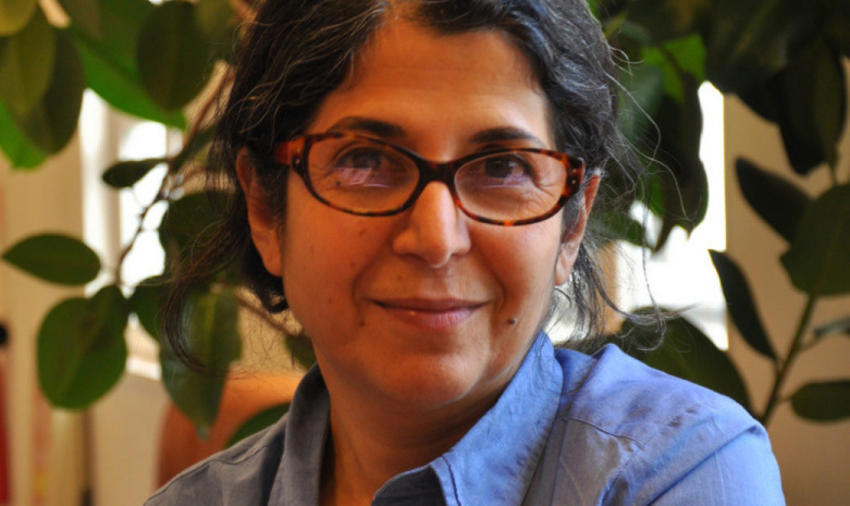
 Actualité Sciences Po
Actualité Sciences Po
5 June 2020 has marked a very sad anniversary: our colleague and friend, Fariba Adelkhah, a researcher at Sciences Po’s Centre for International Studies, has now been imprisoned without motive in Iran for one year.
For one year she has fought with courage, tenacity and unfailing dignity, deserving of our utmost admiration.
Over the course of this year of incarceration, Fariba’s health has been weakened, particularly as a result of a several week-long hunger strike. It remains threatened today by the Covid-19 epidemic, still rife in Iran. Nevertheless, with characteristic generosity, Fariba continues to be actively involved with fellow inmates of Tehran’s Evin Prison. She offers French classes and has been put in charge of running the prison library.
The liberation of our colleague Roland Marchal and his repatriation on the 20 March constituted a first victory in this story. Marchal’s release was made possible by the intervention of the Ministry of Foreign Affairs, the French authorities as a whole and by numerous initiatives on the part of the Fariba Adelkhah & Roland Marchal Support Committee. All our efforts are now turned towards the hope of securing freedom for Fariba.
The verdict of Fariba’s trial on the 16 May sentenced her to six years in prison: five years for “conspiring to undermine national security” and one year for “propaganda against the system”. This heavy sentence is not founded on any serious grounds. Rather, it is political in nature, as French authorities have affirmed in a statement on the matter. This sentence is not yet definitive as it awaits examination by the Court of Appeal and the Supreme Court.
Now more than ever, we must redouble our efforts and work tirelessly to support our colleague and friend, by calling for her immediate release.
Fariba can rest assured of the support of a huge number of organisations, including the City Councils of Paris and Strasbourg, where she completed her studies, both of whom have been active in campaigning on her behalf since the beginning of her imprisonment. Nobel Peace Prize winner, Ms Shirin Ebadi, has also wished to affirm her support for Fariba’s cause and that of numerous other political prisoners detained in Iran. Her message is a fervent call for their freedom, in the name of fundamental human rights.
Fariba Adelkhah knows that we are with her in thought and that we will continue to be so until the day she is freed. Her fight is our fight.
Olivier Duhamel, President of the Fondation nationale des sciences politiques (FNSP)
Frédéric Mion, President of Sciences Po
More
- Shirin Ebadi, 2003 Nobel Peace Prize, Calls for Fariba Adelkhah's Liberation
- Freedom for Fariba, Freedom for Research, by Alain Dieckhoff, CERI director
- Join the Support Committee












